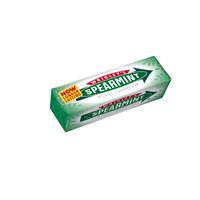New York: US consumers named having “whiter teeth” or a “better smile” most often when asked to list the benefits of practicing good oral hygiene, despite a growing body of evidence that suggests that the gum disease gingivitis, if allowed to progress to periodontitis (advanced gum disease), may increase one’s risk for broader health problems over time.
There are several explanations for a possible causal relationship between oral health and overall health. The scientific community is still exploring and debating this potential connection, examining the role of germs that cause periodontitis (advanced gum disease), chronic inflammation of the gums resulting from periodontitis, genetics and lifestyle habits, such as smoking.
Nearly 100 percent of dental professionals (98 percent) and physicians (91 percent) indicate that they believe that there is a link between oral health and overall health, and many are already trying to educate consumers about the mouth-body association. In fact, 65 percent of physicians and 94 percent of dental professionals surveyed reported that they are discussing the association between poor oral health and broader health problems with at least some of their patients.
The makers of Listerine this week launched a print advertising campaign to help educate consumers on the association between oral health and overall health as well as to remind consumers of the benefits of a twice-daily rinse with Listerine Antiseptic.
“It’s great to see that physicians as well as dentists are informing their patients about this emerging science, but we also need to take it a step further by recommending immediate actions that our patients can take to make a difference,” says nationally recognized dentist Dr. Gregg Lituchy, a pioneer in the dental health field. “My patients appreciate it when I can recommend simple ways to achieve improvement in their oral care. For example, in addition to regular visits to the dentist, twice-daily brushing and once-daily flossing, I recommend rinsing with Listerine for 30 seconds twice a day, which has been shown to reduce significantly more plaque and gingivitis when added to brushing and flossing. That’s a small time commitment, but a big win.”
In addition, physicians should encourage their patients to make regular visits to their dental professional so that they may detect early any oral health problems, which can be a sign of other health problems.
While more than 80 percent of consumers surveyed reported brushing their teeth two or more times a day, only 56 percent said they regularly floss and 60 percent use an antiseptic mouthrinse such as Listerine(R) Antiseptic.
Dental professionals surveyed named gum diseases (gingivitis and periodontitis) more frequently than cavities when asked to list the most common oral health issues their patients face.
More about the mouth-body connection
There are several possible explanations for the link between oral health and overall health. One theory involves the germs that cause advanced gum disease (periodontitis). Another theory points to the potential effects of chronic inflammation of the gums caused by advanced gum disease. In any event, genetics or bad habits, such as smoking, may increase the chances of both poor oral health and poor overall health.
“The connection between poor oral health and broader health problems is not yet completely understood. We do know, however, that periodontitis is a bacterial infection, characterized in part by inflammation of the gums,” says William Meggs, M.D., author of The Inflammation Cure and professor and chief of the Division of Toxicology, and vice chair for Clinical Affairs for the Department of Emergency Medicine at the Brody School of Medicine at East Carolina University School of Medicine in Greenville, North Carolina. “Many experts believe that inflammation, in the mouth and elsewhere in the body, is a common thread linking a broad range of health problems.”
While the nature of the link is not yet fully understood and no cause-and-effect relationship has been established, what has been shown is that some sort of an association exists between oral health and overall health, and that both dental professionals and physicians agree that it is a good idea to maintain the health of your mouth, including your gums.
About the Surveys
The surveys, with a focus on the association between oral health and overall health, were conducted in May 2006, interviewing a nationwide sample of 1,001 U.S. adults 18 years of age and older and 301 medical doctors and 303 dentists. Data for the total sample were weighted to be representative of the total U.S. adult population on the basis of region, age within gender, education, household income, and race/ethnicity. The surveys were sponsored by Pfizer Consumer Healthcare, makers of Listerine Antiseptic.
About Plaque and Gum Disease
Plaque, a soft, sticky film of bacteria, is directly responsible for the development of gingivitis, an early and reversible form of gum disease. When the bacteria that cause plaque stick to the teeth and gum tissue and multiply, the tissue becomes infected and inflamed, and the gums become red, swollen and sometimes bleed easily. More than half of Americans have some form of gingivitis, but because it’s painless, many people don’t realize they have it.
If left untreated, gingivitis can lead to the advanced gum disease periodontitis, which when left untreated can lead to eventual tooth loss. Periodontitis also is difficult to detect, because it is often painless. Up to 15 percent of adults will experience the severe form of this disease. The best way to determine whether or not you have gingivitis or periodontitis is to see your dentist.
About Listerine
Listerine Antiseptic is the number one dentist-recommended brand of mouthrinse and the only major brand name over-the-counter mouthrinse that carries the American Dental Association (ADA) Seal of Acceptance. Made by Pfizer Consumer Healthcare, Listerine contains a fixed combination of four essential oils and is clinically proven to kill germs that cause bad breath and to help prevent or reduce plaque and gingivitis. Listerine is not indicated for the treatment of periodontitis. To learn more about Listerine Mouthwash and to further explore the mouth-body connection, visit http://www.listerine.com
About Pfizer
Pfizer Inc discovers, develops, manufactures and markets leading prescription medicines for humans and animals and many of the world’s best-known consumer products. The Consumer Healthcare division of Pfizer, headquartered in Morris Plains, New Jersey, is the world’s second-largest consumer healthcare company, with a portfolio of market-leading brands that also includes Purell(R), Neosporin(R), Benadryl(R), Sudafed(R), Visine(R), and Rogaine(R).







